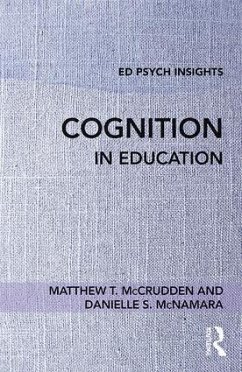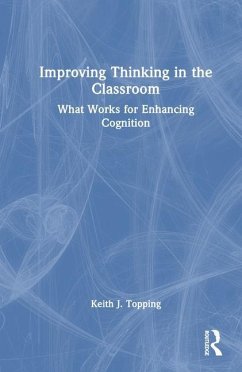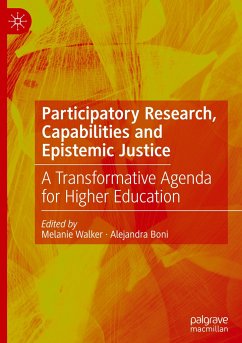
Handbook of Epistemic Cognition
Versandkostenfrei!
Versandfertig in 1-2 Wochen
320,99 €
inkl. MwSt.

PAYBACK Punkte
160 °P sammeln!
The Handbook of Epistemic Cognition brings together leading work from across disciplines, to provide a comprehensive overview of an increasingly important topic: how people acquire, understand, justify, change, and use knowledge in formal and informal contexts. Research into inquiry, understanding, and discovery within academic disciplines has progressed from general models of conceptual change to a focus upon the learning trajectories that lead to expert-like conceptualizations, skills, and performance. Outside of academic domains, issues of who and what to believe, and how to integrate multi...
The Handbook of Epistemic Cognition brings together leading work from across disciplines, to provide a comprehensive overview of an increasingly important topic: how people acquire, understand, justify, change, and use knowledge in formal and informal contexts. Research into inquiry, understanding, and discovery within academic disciplines has progressed from general models of conceptual change to a focus upon the learning trajectories that lead to expert-like conceptualizations, skills, and performance. Outside of academic domains, issues of who and what to believe, and how to integrate multiple sources of information into coherent and useful knowledge, have arisen as primary challenges of the 21st century. In six sections, scholars write within and across fields to focus and advance the role of epistemic cognition in education. With special attention to how researchers across disciplines can communicate and collaborate more effectively, this book will be an invaluable resource for anyone interested in the future of knowledge and knowing. Dr. Jeffrey A. Greene is an associate professor of Learning Sciences and Psychological Studies in the School of Education at the University of North Carolina at Chapel Hill. Dr. William A. Sandoval is a professor in the division of Urban Schooling at the UCLA Graduate School of Education & Information Studies. Dr. Ivar Bråten is a professor of Educational Psychology at the Faculty of Educational Sciences at the University of Oslo, Norway.












